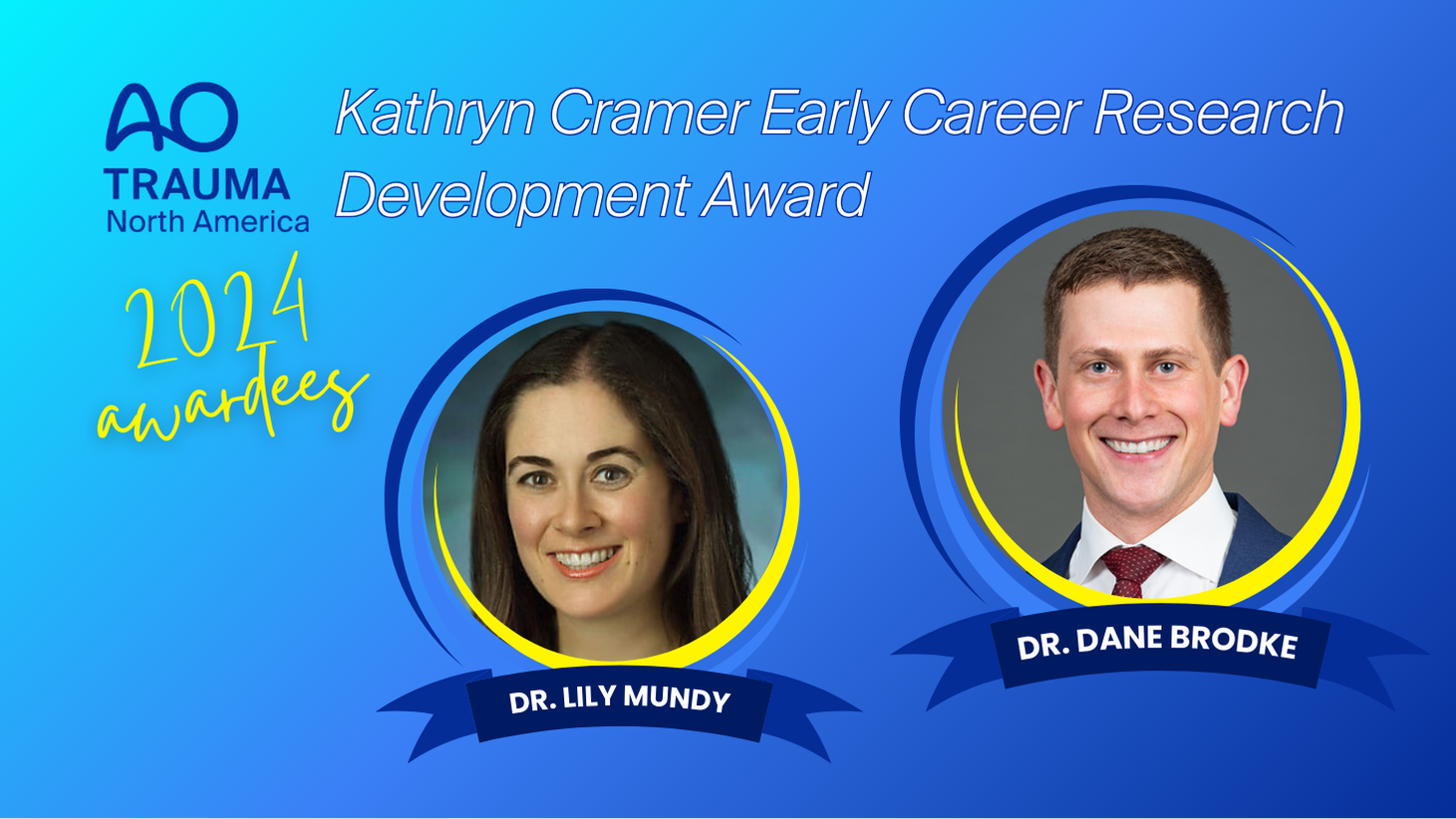Kathryn Cramer Career Development Award Advancing Trauma Care Through Innovative Research

Two Surgeons Recognized for Groundbreaking Trauma Research with Kathryn Cramer Career Development Award
Dr. Lily Mundy, a reconstructive microsurgeon at Johns Hopkins University, has been awarded the Kathryn Cramer Early Career Development Award for her research project focused on improving soft tissue reconstruction in lower extremity trauma patients. Her project aims to gather preliminary clinical data to support a clinical trial that evaluates the impact of different flap types on infection rates in these patients. Dr. Mundy’s research is driven by the high rate of infection observed in severe lower extremity open musculoskeletal injuries.
While basic science has shown potential benefits of certain flap types, clinical data remains inconclusive. By conducting this research, Dr. Mundy hopes to establish clear clinical evidence that could lead to lower infection rates, ultimately improving patient outcomes. Her interest in this area developed during her clinical training alongside orthopedic traumatologists, where she recognized opportunities for plastic surgeons to optimize soft tissue reconstruction in trauma patients. Despite many unanswered questions in this field, Dr. Mundy believes optimizing flap selection could reduce infection and non-union rates in patients with severe injuries.
Looking ahead, Dr. Mundy hopes her research will shape how plastic surgeons approach flap tissue selection in trauma care. If successful, her work could lead to significant changes in surgical practices and improve recovery outcomes for these patients. Support from AO North America will play a critical role in advancing her research, particularly by funding the essential preliminary analyses required to justify a larger clinical trial on flap types. This recognition will help propel Dr. Mundy’s work toward making a meaningful impact in the field of trauma surgery.
Dr. Dane Brodke is an assistant professor of Orthopaedic Surgery at OHSU. He specializes in treating complex arm, leg and pelvis fractures. His project will focus on determining whether passively collected smartphone step data, in conjunction with radiographic and clinical parameters, can accurately predict nonunion after a tibial shaft fracture. He hypothesizes that 3-month step counts and other mobility metrics from patients' iPhones recorded at 3 months post-operative can be combined with clinical and radiographic information to identify patients developing nonunion with 80% accuracy.
Dr. Brodke says this research is crucial right now because surgeons currently lack tools to accurately diagnose nonunion at early timepoints after tibial shaft fractures. Patients with nonunions experience immense pain and disability comparable to end-stage arthritis. Enabling surgeons to reliably identify and intervene on nonunions at 3 months instead of the more typical 6 - 12 months could alleviate months of unnecessary suffering. Given the high incidence of tibial shaft fractures, even small improvements in time to treatment could have a substantial global impact.
He was motivated to pursue this research after repeatedly observing limitations in understanding of patient recovery and the ability to compare treatments due to incomplete data on functional outcomes. During his fellowship, he conducted a pilot study showing that step counts differentiate between patients who do and do not develop nonunions. “This exciting finding suggested mobility metrics could potentially help diagnose complications in addition to measuring outcomes.” Dr. Brodke says.
In the long-term, he envisions smartphone mobility data becoming a transformative tool in orthopaedics, enabling objective measurement of functional outcomes after a wide range of injuries and treatments. Establishing step counts as an early indicator of tibial nonunion will serve as a model use case. The track record from this work will position him to secure larger federal grants, build a decision support tool for tibial nonunion diagnosis, and expand smartphone-based outcomes assessment to improve our understanding of and ability to optimize recovery for patients.
Dr. Brodke says the support from the AO Trauma North America Kathryn Cramer Career Development Award is instrumental to advancing this research. It provides funding to support the personnel needed to carry out the study. The award will also support continued development and deployment of the custom iOS app that is central to this research. The travel support provided by the award allows for the dissemination of the findings and building collaborations to expand this line of research.
This year's applications will be opening this summer.
